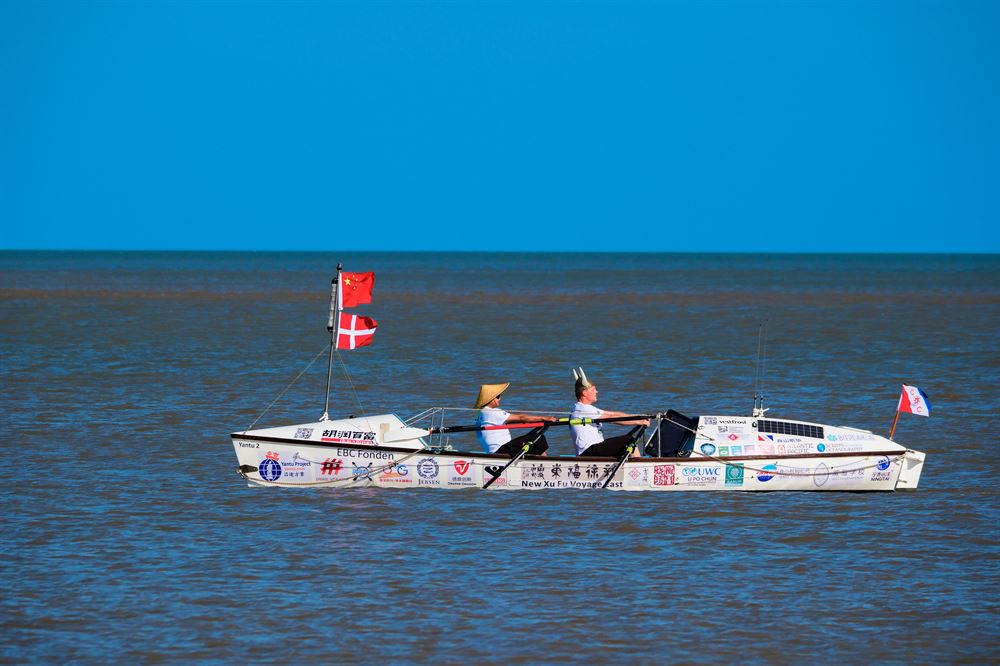
HONG KONG - A pair of Chinese and Danish ocean rowers embarked on a journey on Monday to retrace the route of a maritime explorer in ancient China who searched for the “elixir of immortality” in the eastern seas.
Starting their 1,300-kilometer expedition in Zhoushan, East China’s Zhejiang province, Chinese ocean rower Sun Haibin and his Danish partner, Christian Havrehed, will imitate the journey of Xu Fu, who was sent by Qin Shi Huang, China’s first emperor and the founder of the Qin Dynasty (221-206 BC).
In 2001, the pair rowed 5,000 km across the Atlantic Ocean together in 56 days.

The first leg of their voyage is a non-stop 800 km crossing of the East China Sea to Nagasaki in Japan. This has never been done before with a rowboat, according to organizers.
The duo would clear into Japan before continuing a 500-km coastal row around the southern tip of Japan’s Kyushu Island, Cape Sata, and up the east side of the island to Nobeoka.
They were expected to complete their journey on June 30. An international Xu Fu Conference is planned in Nobeoka to celebrate their arrival and the completion of the expedition.

Along their journey, the oarsmen will visit sites in Japan dedicated to Xu Fu and have cultural exchanges with the local Xu Fu Associations to promote the ancient explorer’s story.
READ MORE: Tokyo forum finds exchanges build trust and healthy ties
They are also supporting the United Nations’ Sustainable Development Goal 14, Life Below Water, by conducting citizen science research for Eyesea and Scripps Institution of Oceanography, as well as offering Xu Fu Environmental Scholarships to students.
This expedition had been recognized by the Explorers Club, an international organization devoted to promoting scientific exploration and field study, and granted an expedition flag for the voyage.


